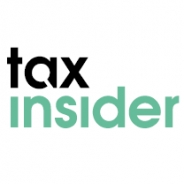
This article is an extract from our specialist tax report IR35: Tax Tips for Contractors.
The IR35 rules are anti-avoidance rules, which were introduced with effect from 6 April 2000 in respect of services performed on or after that date. The measures were introduced to target workers predominantly in the IT industry who resigned from their job on a Friday and started in a self-employed capacity on the following Monday in essentially the same role. However, their application is not limited to the IT industry – they potentially apply to any worker who provides his or her services through a personal service company or other intermediary.
The name `IR35’ is taken from the number of the HMRC (then the Inland Revenue) press release in which the measures were announced. The rules are also referred to as the `intermediaries’ legislation’ and, more recently, the off-payroll working rules. In this guide, these terms are used inter-changeably.
The IR35 rules target the perceived loss of tax and National Insurance to the Exchequer that may arise where a worker provides his or her services to a client through an intermediary such as a personal service company and, in the absence of the intermediary, the worker would be an employee of the client. So, instead of the worker paying PAYE and Class 1 employee’s National Insurance contributions, and the client paying employer’s National Insurance, the client makes a gross payment to the personal service company. The worker then extracts profits from the personal service company, typically in the form of a small salary and dividends and paying little or no National Insurance (as no National Insurance is payable on dividends). However, it should be noted that the personal service company willbe liable to pay Corporation Tax on its profits. The IR35 rules seek to claw back the tax and National Insurance that would otherwise be lost as a result of providing services in this way.
The IR35 rules bite where, but for the existence of the intermediary, the worker would have been an employee of the end client. This is determined by applying the usual employment status tests (discussed at Section 7 below).
Essentially, the effect of the IR35 provisions is to try to replicate the tax and National Insurance position that would have arisen had the worker provided his or her services to the client directly as an employee. This is achieved by regarding the earnings of the intermediary as the income of the worker and calculating a deemed payment, which is treated as having been paid to the worker on 5 April at the end of the tax year. The worker must pay income tax and employee’s Class 1 National Insurance on the deemed payment and the intermediary must pay employer’s Class 1 National Insurance. Certain deductions are taken into account in calculating the deemed payment.
When IR35 was introduced, it was the intermediary, such as the personal service company, which was responsible for determining whether IR35 applies. The rules were reformed from 6 April 2017 where the end client is a public sector body. Under the reforms, responsibility for deciding if the off-payroll working rules apply moved from the intermediary to the public sector body. Where the engagement is within the rules, the fee payer must deduct tax and National Insurance from payments made to the intermediary.These rules are discussed in Section 21.
These rules are to be extended to medium and large private sector clients from April 2020 – one year later than originally planned. An initial consultation on the application of the off-payroll rules to the private sector was undertaken in 2018. In light of comments received in response to that consultation, a decision was taken to restrict the reforms to medium and large private sector end clients. Where the end client is a small private sector body, the existing rules will continue to apply, with responsibility for determining whether the IR35 rules apply remaining with the personal service company. A further consultation was published on 5 March 2019 which sought views on the scope of the reforms and how they will work in practice. The consultation runs until 28 May 2019. Responses to the consultation will inform the publication of draft Finance Bill clauses, to be published in the summer of 2019. The legislation will come into force from 6 April 2020. The proposals are explored in Section 22.
IR35 may also be relevant where services are supplied via an employment intermediary or umbrella company and that company is not required to operate PAYE.
The IR35 rules do not apply to managed service companies that fall within the special rules for managed services companies. An intermediary, which may also be a managed service company, needs to consider whether the managed service company rules apply before considering whether IR35 is in point. Consideration of the managed service company provisions is outside the scope of this guide.
Potential Trap
All contractors operating through an intermediary such as a personal service company may fall within IR35 for off-payroll working. It is essential to consider whether the rules apply. Ignoring them can be a costly mistake. Where the end client is a public sector body, from 6 April 2017 onwards, the responsibility for determining whether the off-payroll working rules apply falls on the public body. Prior to 6 April 2020, where the end client is in the private sector, the intermediary is responsible for determining whether the rules apply.
Want to read the rest of this report?
Get the rest of this special 15,500+ word report for only £39.97 + £1.97 P&P - order today.



Please register or log in to add comments.
There are not comments added